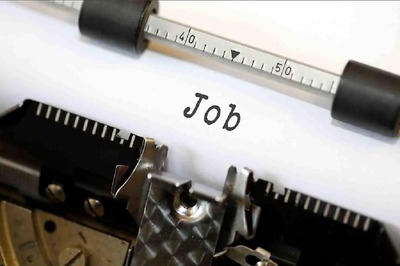
views
Washington: On Monday, President George W Bush commuted the prison term of former White House aide I Lewis "Scooter" Libby, facing 30 months in prison after a federal court convicted him of perjury, obstruction of justice and lying to investigators.
A commutation is distinct from a pardon, which is a complete eradication of a conviction record and makes it the same as if the person has never been convicted.
Bush has only commuted the jail term, which means that the conviction remains on Libby's record and he must still pay a $250,000 fine.
Commutations are rarely granted, says CNN's chief legal analyst, Jeffrey Toobin. "A commutation is a total right of the president and it cannot be challenged by any attorney or court."
It's the fourth time Bush has issued one.
Earlier on Monday, a federal appeals court unanimously ruled that Libby could not delay serving his sentence, which would have put Libby just weeks away from surrendering to a prison.
In a written statement commuting the jail sentence, issued hours after Monday's ruling, Bush called the sentence "excessive," and suggested that Libby will pay a big enough price for his conviction.
"The consequences of his felony conviction on his former life as a lawyer, public servant, and private citizen will be long-lasting," he said.
The President, who has been under great pressure to pardon Libby, said Libby was given "a harsh sentence based in part on allegations never presented to the jury".
The commutation does nothing to prevent Libby from appealing his conviction. And if the appeal fails or is still in process at the end of Bush's term, there is nothing to prevent the President from granting Libby a full pardon before he leaves office.
Libby's conviction is linked to the investigation into the 2003 leak of CIA operative Valerie Plame's identity.
An outraged Joe Wilson, Plame's husband, spoke to CNN shortly after the ruling. Wilson had gone public with allegations that the Bush administration had "twisted" the evidence used to justify the invasion of Iraq, and prosecutors argued that Libby disclosed her employment as part of an effort to discredit him.
"I have nothing to say to Scooter Libby," Wilson said. "I don't owe this administration. They owe my wife and my family an apology for having betrayed her. Scooter Libby is a traitor."
Libby was not accused of disclosing Plame's identity himself. But at trial, Special Prosecutor Patrick Fitzgerald told the jury that Libby's actions left "a cloud over the White House" by obstructing the leak probe.
In a statement issued on Monday night, Fitzgerald took issue with Bush's description of the sentence as "excessive," saying it was "imposed pursuant to the laws governing sentencings which occur every day throughout this country."
"It is fundamental to the rule of law that all citizens stand before the bar of justice as equals," Fitzgerald said. "That principle guided the judge during both the trial and the sentencing."
Plame had worked in the CIA's counter-proliferation division before the March 2003 invasion. She told a Congressional committee in March that her exposure effectively ended her career and endangered "entire networks" of agents overseas.
Her husband said Bush's action demonstrates that the White House is "corrupt from top to bottom."
Clemency petitions are normally reviewed by the Justice Department, which investigates the case and seeks input from the federal prosecutor who brought the case before issuing a recommendation to the president. A government official told CNN that Bush did not consult with the Justice Department before rendering his decision.
Reaction on Capitol Hill was swift. House Speaker Nancy Pelosi, a Democrat from California, said the President had "abandoned all sense of fairness when it comes to justice".
"The President's commutation of Scooter Libby's prison sentence does not serve justice, condones criminal conduct, and is a betrayal of trust of the American people," she said.
One of the few members of the GOP backing Bush, House Republican Whip Roy Blunt of Missouri, said the commutation was "the right thing to do."
"The prison sentence was overly harsh and the punishment did not fit the crime," said Blunt.
Plame's name became public when Robert Novak named her in his column on July 14, 2003.
Former Deputy Secretary of State Richard Armitage has admitted he disclosed the information to a reporter. Novak pointed to another "senior administration official" -- Bush political adviser Karl Rove -- as the second source for his column.
No one has been charged with leaking classified information in the case, but a jury found Libby guilty of trying to deceive investigators and a grand jury during the investigation.
Bush was under great pressure to grant a pardon to Libby.
Libby, the former chief of staff to Vice President Dick Cheney, is the highest-ranking White House official ordered to prison since the Iran-Contra affair.
Polls suggest the American public may not be happy with Libby's commutation.
A CNN/Opinion Research Corp. poll taken in March asked if Bush should pardon Libby -- 69 percent said no, 18 percent said yes.
Ted Wells, an attorney for Libby, issued a statement late Monday saying that Libby and his family "wish to express their gratitude for the president's decision."
"We continue to believe in Mr. Libby's innocence," Wells said. "Scooter and his family appreciate the many Americans who have supported them over the last two years."




















Comments
0 comment